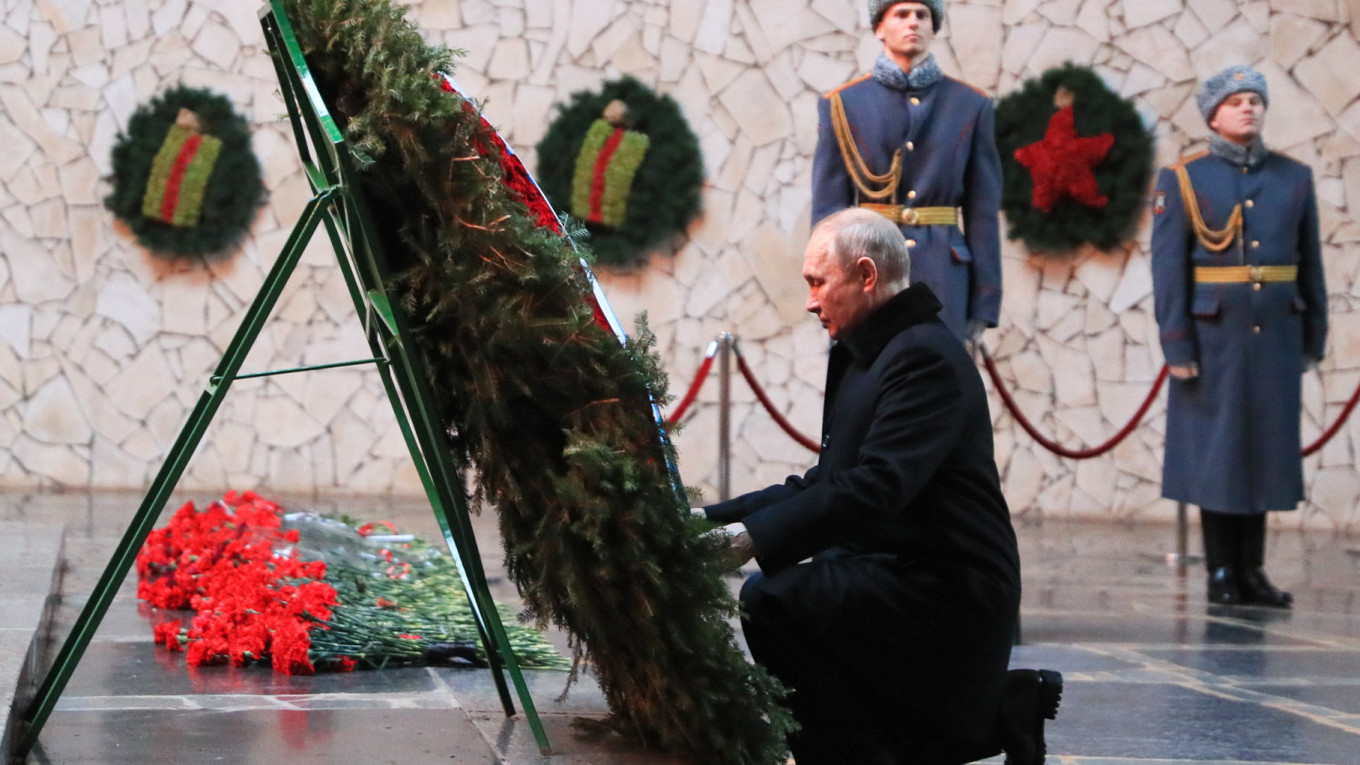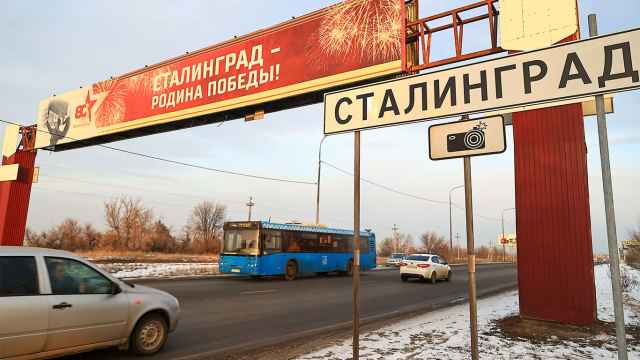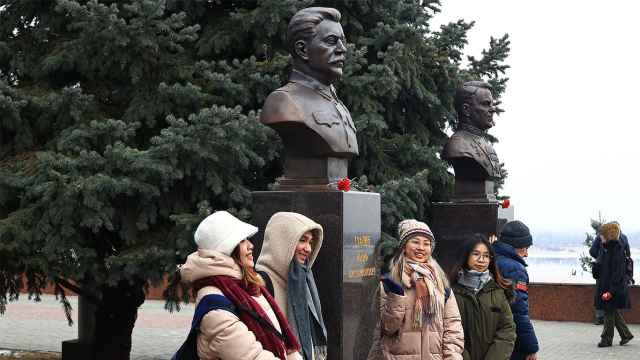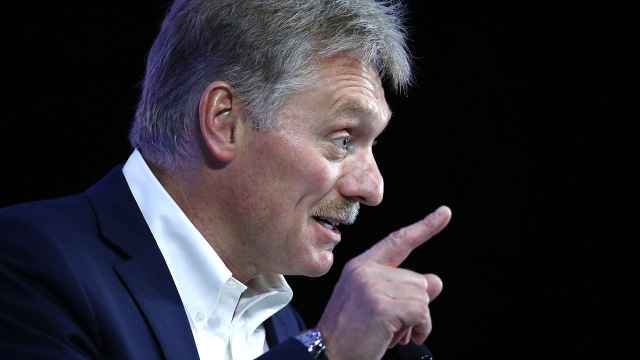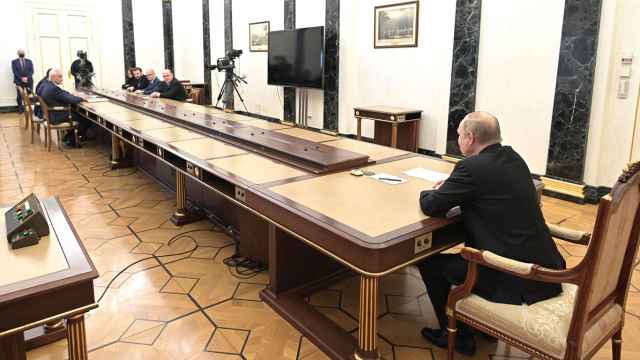Speaking during a ceremony in Volgograd on Thursday to commemorate the 80th anniversary of the Battle of Stalingrad, Russian President Vladimir Putin said that it was "unbelievable, but true" that his country once again found itself being threatened by German tanks "with crosses on them."
“Those who expect to win on the battlefield apparently do not understand that a modern war with Russia will be utterly different for them. We are not the ones sending our tanks to their borders,” Putin said, referring to the military aid promised to Ukraine by its European and American allies.
“But we have a way to respond, and it will not just end with the use of armored vehicles. Everyone should understand this,” Putin added, in an apparent allusion to Russia's enormous nuclear weapons arsenal.
Putin had earlier laid flowers at the eternal flame on Mamayev Kurgan, a hillside where much of the fighting took place that now hosts the "Battle of Stalingrad" museum complex and the city's famous statue "The Motherland Calls."
On Wednesday, a new monument to Soviet leader Josef Stalin was also unveiled in the city — the second such contemporary monument in Volgograd dedicated to the Soviet dictator.
Ahead of Putin's arrival in Volgograd — which was known as Stalingrad between 1925 and 1961 — local authorities carried out last-minute repairs to the city's Astrakhan bridge and hurriedly covered up poorly-maintained buildings in the city center with giant awnings. Stray animals were also reportedly removed from the streets and local residents experienced interruptions to mobile phone services, according to local media outlet V1.Ru.
Volgograd region Governor Andrei Bocharov was reportedly quarantined ahead of his meeting with Putin, according to local media V1.Ru, and hadn't been seen in public for a week.
Stalingrad was the most important single battle of World War II and lasted from August 1942 to February 1943, claiming an estimated 2 million lives. The battle ended with the surrender of Hitler's 6th Army, the first capitulation of German forces in the conflict, which ultimately led to the allied victory over Nazi Germany two years later.
The city's name was changed to Volgograd in 1961 as part of the de-Stalinization process, though in recent years the city has reverted to the name Stalingrad on major holidays and anniversaries.
A Message from The Moscow Times:
Dear readers,
We are facing unprecedented challenges. Russia's Prosecutor General's Office has designated The Moscow Times as an "undesirable" organization, criminalizing our work and putting our staff at risk of prosecution. This follows our earlier unjust labeling as a "foreign agent."
These actions are direct attempts to silence independent journalism in Russia. The authorities claim our work "discredits the decisions of the Russian leadership." We see things differently: we strive to provide accurate, unbiased reporting on Russia.
We, the journalists of The Moscow Times, refuse to be silenced. But to continue our work, we need your help.
Your support, no matter how small, makes a world of difference. If you can, please support us monthly starting from just $2. It's quick to set up, and every contribution makes a significant impact.
By supporting The Moscow Times, you're defending open, independent journalism in the face of repression. Thank you for standing with us.
Remind me later.


